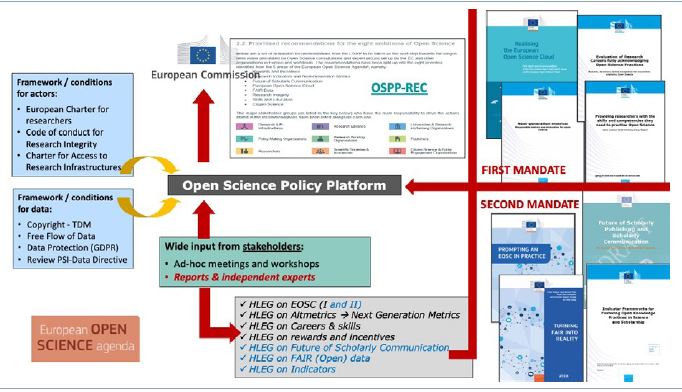The Open Science Policy Platform (OSPP), the High-Level Advisory Group that advised the European Commission on how to develop Open Science between 2016 and 2020, has produced its final report, “Progress on Open Science: Towards a Shared Research Knowledge System” GYA alumna Sabina Leonelli (University of Exeter, United Kingdom) and Co-Chair Koen Vermeir (CNRS, France) represented the Global Young Academy in this Advisory Group. Both are also active in the GYA working group on Open Science.
Koen says that “In order to find a broadly shared consensus on Open Science, it has been crucial to sit together with all the stakeholders represented in the OSPP: from early-career researchers to scientific societies, from the big publishers to Open Access platforms, from libraries to businesses. To find a way forward and give advice to policy makers, one needs to understand and take into account all these perspectives. As such, the OSPP has fulfilled a unique role in the European scientific and policy landscape. With this final report, these stakeholders also show that they can work together and make concrete commitments to make Open Science a reality as soon as possible.”
This report provides a brief overview of the OSPP’s four-year mandate from 2016 to 2020, followed by an update on Europe’s progress made across the European Commission’s eight ambitions on Open Science as defined in the 2016 OSPP-Recommendations.
Young Academies are prominently mentioned in the report as key stakeholders to promote and develop Open Science, as they actively develop leadership, networking and outreach skills, and integrate Open Science activities. Young Academies also support DORA and help shape the international discussion on research assessment. Radically re-thinking how researchers are evaluated is crucial for the promotion of Open Science, especially among early-career researchers. Finally, the OSPP final report proposes a vision for moving beyond Open Science to create a shared research knowledge system by 2030.
